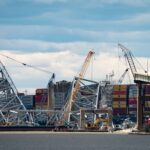“Syria, Venezuela and Zimbabwe top a list of 40 politically risky territories and destinations for foreign investment,” according to a report from Willis Group Holdings. The findings appear in the latest edition of the Willis Political Risk Index, which is produced three times a year in partnership with Oxford Analytica.
Syria tops the list due to the ongoing war that began in 2011, and shows no signs of ending. Willis said it is “ranked in the highest risk band (extreme) for four out of the five perils recorded in the Index, including political violence, terrorism, exchange transfer and sovereign default. Meanwhile, Zimbabwe and Venezuela, both territories that are beset by long running economic problems, are ranked very high or extreme for the risk of expropriation and sovereign default.”
The Index study warns that recently the “beneficial conditions that have driven emerging market growth for the past decade are threatening to reverse.” It said that “given the rising levels of economic stress in emerging markets, it is perhaps unsurprising that in this edition of the Index the number of countries with a rising risk temperature again exceeds those whose risk temperature is falling. Nineteen countries saw their overall risk score rise, ten countries saw their score fall, and eleven were unchanged.”
According to the Index it’s very likely that the “emerging economies will experience a difficult stress test in the year ahead, as Chinese demand slows, commodity prices remain weak, and borrowing costs rise.
“This stress test will likely see a sharp escalation of economically driven political risks, such as exchange transfer and sovereign default risks. In some countries, these economic stresses could be reflected in threats to political stability as well.”
Graham Hutchings, Chairman of Oxford Analytica, said: “At this point, most analysts consider a repeat of the emerging markets crises of the late 1990s to be unlikely. Emerging economies maintain far higher foreign exchange reserves now, and exchange rates tend to be more flexible.
“It is also possible that the stresses described above will not emerge at the same time: commodity prices might recover; China’s growth could rebound; or interest rate hikes might be delayed. That said, the next year offers the potential for serious economic stress. And, as has recently been the case in Brazil, economic difficulties can quickly lead to escalating political challenges.”
Paul Davidson, CEO of Willis’s political and trade credit risk practice, added: “Over recent months we have been monitoring the rising levels of political risks, particularly in emerging market economies.
“We have also launched a new political risk model called VAPOR (Value at Political Risk) which enables companies to obtain a financial evaluation of their own, very unique, political risk exposures. This initiative is something I am confident will become an important tool for many of our clients. It gives them the ability to assess their global portfolio risk and compare the financial impact of political risk exposures, in real dollar-value terms between countries.”
Source: Willis Group Holdings
Topics Trends
Was this article valuable?
Here are more articles you may enjoy.


 Why New York’s Attorney General Objects to Trump’s Bond Insurer
Why New York’s Attorney General Objects to Trump’s Bond Insurer  Cargo Owners in Baltimore Disaster Face ‘General Average’ Loss Sharing, MSC Says
Cargo Owners in Baltimore Disaster Face ‘General Average’ Loss Sharing, MSC Says  California Sees Two More Property Insurers Withdraw From Market
California Sees Two More Property Insurers Withdraw From Market  Allstate Reports $731M in Q1 Pretax Catastrophe Losses
Allstate Reports $731M in Q1 Pretax Catastrophe Losses 

